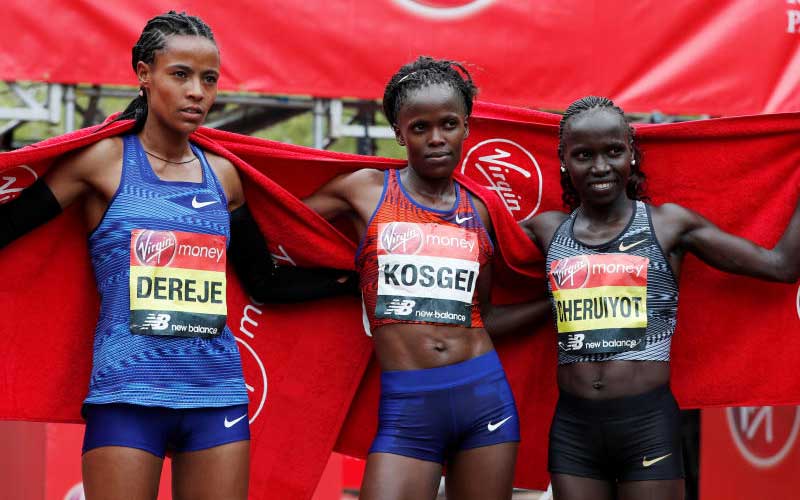
Kenya's Brigid Kosgei celebrates winning the women's elite race as she poses with second placed Kenya's Vivian Cheruiyot and third placed Ethiopia's Roza Dereje, April 28, 2019. [File, Reuters]
As Athletics Kenya celebrates its 70th anniversary this month, it gives me pleasure to reaffirm that our global share of athletics glory will forever be engraved in the history of sports. The exploits of our iconic athletes are a true hallmark of success, and they offer us a basis to further sports diplomacy as an avenue to increase our linkages.